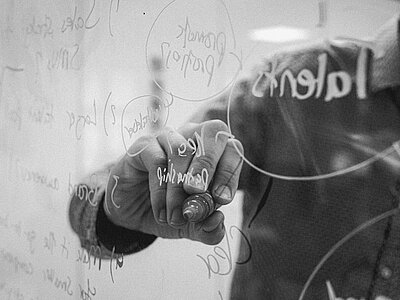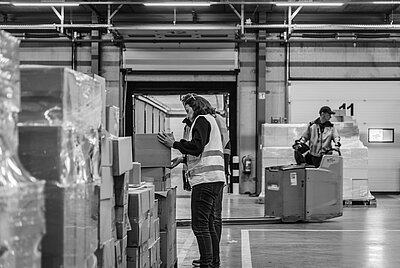I spoke to one of my colleagues, Marcea Van Doorn, Sustainability Manager at Worldpack’s parent company Bunzl. She feels that there needs to be more nuance in the debate about plastic. “Plastic is not all bad,” she says. “The larger problem is the general public’s lack of awareness of what the real environmental challenges are - especially for retail brands.”
“Plastic is one of the world’s greatest inventions. When used properly, it is a brilliant material. Problems arise in how it is used and disposed of. We need to move to a circular system where plastic is valued, recycled and never hits the natural environment.”
As Professor Michael Norton of The European Academies Science Advisory Council (EASAC), says: “We do not question the essential role and benefits of plastics in our way of life. But the warning of our recent report is not a dystopia of environmental activists. It’s science. European legislators should adopt rules and incentives to speed up the move toward a circular plastic waste economy. We have to reuse plastic goods and packaging, drastically improve our recycling and, above all, see that no waste is leaked into the environment.”
And the British Plastics Federation agrees: “Plastic brings many benefits, enabling many other cutting-edge technologies and keeping the weight and fuel emissions of vehicles down. The enemy is not plastic, it is plastic waste.”
Using plastic responsibly
Plastics are made from polymers, a range of molecular chains which can be highly customised to meet each manufacturer’s specific requirements and perform whole range of jobs. But this diversity complicates the recycling process.
One solution is to take note of industry guidelines such as those from UK Waste and Recycling charity WRAP that advises packaging manufacturers, brand owners and retailers on embedding recyclability principles into their design processes. Guidance includes cutting down on the use of colourants, labels, sleeves and adhesives to simplify the recycling process. EUROPEN, the European Organisation for Packaging and the Environment, agrees: “It is important that packaging is not considered in isolation when assessing its environmental performance. A life-cycle approach is needed, which comprises all stages of a packed product’s lifecycle, from responsible sourcing, processing, packaging, distribution, use-phase to the end-of-life stage.
And this is something that Worldpack entirely agrees with. There is a lot more that we can do as an industry. Worldpack offers a lot of education and communication to customers. We are finding more retail brands are coming to us for advice on implementing eco changes. Our consultancy is helping our retail brand customers make small changes that can have a massive impact – right across the options available. Our aim is to inform our customers of the different products and solutions available so they can make the right choice to meet their objectives.
We ask questions such as ‘should your bag be laminated?’ ‘Can your packaging be made out of a single material so that it is easier to be recycled?’ A beautifully designed box made out of a single material can be really eye-catching. But, more importantly, it’s easy for the end consumer to recycle.
If you want to lower carbon emissions, there is an argument that more plastic should be used, not less, but brands need to think about the recyclability of the product.
Towards a circular system
We are making progress. In a bid to streamline the market and simplify recycling, Marks & Spencer is assessing the feasibility of making all its own-brand plastic packaging from one polymer by 2022 (it has already moved from 11 polymers down to 4 today).
And consumers’ buying behaviour is changing too. A recent IBM report showed that 57% of consumers are willing to change their shopping habits to help reduce the negative impact to the environment. Among those who say sustainability is important for them, this jumps to 77%. Of those that say these traits are very important, over 7 in 10 are willing to pay a premium for brands that support recycling, practice sustainability, or are environmentally responsible.
As the World Plastics Council says: “As with all materials, proper ‘post use’ management of plastic helps ensure a more sustainable future for ourselves and our children,” but as the British Plastics Foundation points out, “we need to be informed so we can learn how to use plastic more intelligently.”
There is still a long way to go, and it’s not all about the packaging. It’s about how we all – brands and consumers - think about our environment and put into practice little changes that will make a difference in the long run. How we change our perception of what is good for the environment is key to making a sustainable impact and that includes being more informed on all materials including plastic in the circular economy.


